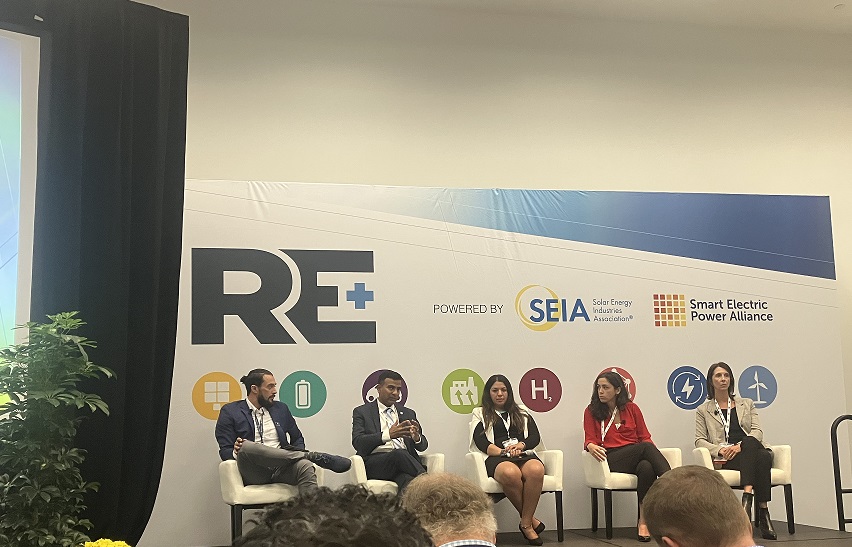
Lightsourcebp is considering which long-duration energy storage technologies would be best suited for integration with its US solar power portfolio.
Sara Kayal, global head of PV integrated solutions at the solar developer, was speaking on a panel discussion on long-duration energy storage (LDES) held on Day One of the RE+ 2022 clean energy industry trade event in California.
Recently ranked top among global utility-scale solar developers by Mercom, Lightsourcebp has been looking to add energy storage to its solar farms, Kayal said, and supportive policies in the US mean non-lithium LDES technologies could be chosen.
“We are looking at adding to storage to our solar farms; that can be battery storage, it could be green hydrogen,” Kayal said, adding that “this is exactly the time [when] we need to discuss long duration because we have incentives, and we now have the power to make it happen”.
Try Premium for just $1
- Full premium access for the first month at only $1
- Converts to an annual rate after 30 days unless cancelled
- Cancel anytime during the trial period
Premium Benefits
- Expert industry analysis and interviews
- Digital access to PV Tech Power journal
- Exclusive event discounts
Or get the full Premium subscription right away
Or continue reading this article for free
Kayal later in the discussion noted that in regions like Texas’ ERCOT market, many megawatt-hours of renewable power are lost to curtailment during periods of excess generation, which LDES could be suited to solve.
As with some other sources Energy-Storage.news spoke to at the event, Kayal also added that “competing with electric vehicles (EVs)” for battery supply isn’t working, referring to the major cause of supply chain constraints for lithium-ion.
The session’s moderator, Michael Foster at developer Avantus – recently rebranded from 8minute Solar Energy – asked the participants for their definitions of long duration. Kayal and Fluence VP of growth and head of commercial Kiran Kumaraswamy agreed that it would broadly be eight hours or more.
Anything over eight hours “goes beyond the constraint” of lithium-ion technology, Kayal said. When pressed by Foster whether that meant lithium would still be competitive at eight hours, said that when it came to evaluating technologies, it might be better to not compare purely in terms of hours stored and discharged.
The durability of some LDES technologies to perform many duty cycles over a long lifetime presents an opportunity to reduce the amount of planning required for augmentation, for example.
Molly Bales of Form Energy said different use cases will require types of energy storage, from the shorter duration applications performed by lithium-ion up to eight hours and diurnal storage beyond that, to storage effective over many hours, or even days.
Form Energy is developing and commercialising a proprietary battery technology based on an iron and air chemistry, designed to offer up to 100 hours of storage. Multi-day storage offers a different use case based on resiliency and reliability of energy supply, rather than daily market participation or peak shifting, Bales said.
Fluence’s Kumaraswamy said that virtual transmission, where energy storage is used to directly enhance the transmission grid and ease congestion, could be a promising application for longer-duration storage.
The energy storage system integrator and technology provider is technology agnostic and continues to evaluate new technologies, Kumaraswamy said. What alternative technologies to lithium-ion need to do, is prove not just that they are competitive for the applications lithium already does well, but that they can provide answers to applications lithium is not suited for.
This article has been amended from its original form to correct an error in spelling Lightsourcebp head of PV integrated solutions Sara Kayal’s name. And later also Kiran Kumaraswamy’s name too. Apologies to both.





